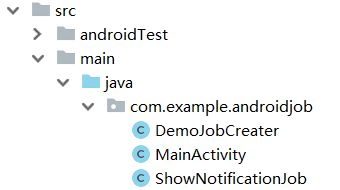- 上位机和MYSQL连接_C#上位机与数据库连接初步学习经验分享一!
weixin_39961369
上位机和MYSQL连接
太一、定义连接字符串,用来链接SQLServerstringstr_con="server=.(服务器名称一般为.);database=WordBook(数据库名称);uid=sa(服务器登录名);pwd=123(服务器密码)";二、有了链接字符串之后,开始数据库操作1、数据库查询定义了一个查询方法,用来调用:publicDataSetqueryDatabase(stringsql)//sql是查
- Install TensorFlow
不放糖的苦咖啡
深度学习与计算机视觉windows64bitpython
安装TensorFlowAnaconda初步学习0.下载Anaconda安装包Anaconda官方下载地址下载的是Anaconda4.3.0ForWindows64bit(内置python3.6)下载好了就安装,一直下一步。1.检查Anaconda是否成功安装:conda–version如果成功的话会显示conda4.3.82.检测目前安装了那些环境:condainfo–envs会显示出现的有关已
- iOS开发——NSURLSession初步学习(下载、待完善)
吉吉有梦想
iOS开发
文章目录一、前文二、NSURLSession与NSURLConnection区别2.1使用现状2.2普通任务、上传和下载2.3下载任务方式2.4请求方法的控制2.5断点续传的方式2.6配置信息三、NSURLSession的优势四、代码部分4.1Xcode不支持http访问的解决办法4.2手动缓存(繁琐)4.3自动缓存四、demo一、前文写这篇文章,是为了总结一周内的学到的关于NSURLSessio
- midjourney初学者必看(迅速入门)
会飞the羊
midjourney
Midjourney初步学习:基本操作流程:-新建一个服务器-在输入框里添加MJROBOT:https://discord.com/oauth2/authorize?client_id=936929561302675456&permissions=2147601472&scope=applications.commands%20bot-输入/→选择imagine开始写prompt-prompt使用
- [python] 一个例子初步学习DataFrame _ 修改列名
Jean2257
pythonpythonDataFrame
例子:假设有4家公司,他们都在2个省份有自己的业务,用统计量v1,v2进行描述,现在需要对这些数据进行一定的分析.#-*-coding:utf-8-*-importpandasaspdlist1=[1,2,3,4,5,6,7,8]list4=[8,7,6,5,4,3,2,1]list2=['a','a','a','a','b','b','b','b']list3=['c1','c2','c3','
- 代码随想录算法训练营总结
张金卓2023
算法数据结构
正式结束了代码随想录算法训练营为期60天的打卡,最终能够坚持下来感觉还是很有成就感的。我作为一个大四保研结束转码的机械人,在推免结束后老师就给我发了代码随想录的网站让我学习算法,我在系统的复习完一遍C语言后初步学习了大致的C++语法,就开始了代码随想录的学习,大概学了半个月多的时间,在没有任何数据结构算法的基础下,学到了二叉树章节,即便有网课的讲解还是感到有些力不从心,没有坚持下去的动力,也是在偶
- 【安全狐】Nmap,Masscan扫描软件 安装教程和基本使用
安全狐
网络基础软件安装教程NmapNmap网络基础软件安装教程扫描工具
一、Nmap初步学习简介Nmap是一个[网络连接端扫描软件,用来扫描网上电脑开放的网络连接端。确定哪些服务运行在哪些连接端,并且推断计算机运行哪个操作系统(这是亦称fingerprinting)。它是网络管理员必用的软件之一,以及用以评估网络系统安全]。正如大多数被用于网络安全的工具,Nmap也是不少黑客及骇客(又称脚本小子)爱用的工具。系统管理员可以利用Nmap来探测工作环境中未经批准使用的服务
- Django学习笔记教程全解析:初步学习Django模型,初识API,以及Django的后台管理系统(Django全解析,保姆级教程)
梦断南楼
Django学习和实践数据库django学习
把时间用在思考上是最能节省时间的事情。——[美]卡曾斯导言写在前面本文部分内容引用的是Django官方文档,对官方文档进行了解读和理解,对官方文档的部分注释内容进行了翻译,以方便大家的阅读和理解。概述在上一篇文章里,我们学习了Django的数据库以及拓展数据库的使用以及设置项。这篇文章,我们开始学习Django的模型、API以及后台管理系统的知识。在Django里写一个数据库驱动的Web应用的第一
- Git的使用教程 2019-06-09
清影独步莞尔长歌
Git的使用教程1.打开GitHub网页注册并登入,点击右上角头像新建一个Reposotoris(仓库)2.进入新建仓库的页面输入一个你想要的仓库名到图中1️⃣标(此处我填写的是blog2)点击选择公共仓库(所有人可见),私人仓库是收费的初步学习的时候建议勾选上3⃣️号,这样库里会自动生成readme.md文件点击最下方createrepository完成库的创建3.进入GitHub页面点击页面中
- java网络编程实现QQ发消息文件,图片等内容
古拉啦啦
前言:昨天我们已经初步学习了网络编程到底是怎么一回事儿,今天在此基础上继续学习网络编程,利用网络编程实现QQ上的发送消息,群聊,私聊等功能。首先我们来回顾一下昨天的两点基础知识:1、建立服务器端服务器建立通信ServerSocket服务器建立Socket接收客户端连接建立IO输入流读取客户端发送的数据建立IO输出流向客户端发送数据消息2、建立客户端创建Socket通信,设置通信服务器的IP和Por
- 感赏第1天
唐英789
加入亲子晨读群成为正式学员有些天了,初步学习了爱表扬,爱沟通,爱叛逆课程。也天天泡群,但是还是觉得茫然,心里也很焦虑,幸好得到桂军师姐的及时指点与鼓励,终于写下第一篇日志。感赏今天儿子去上课,去做实验,而且实验做到7点多才结束,辛苦了,爸妈好开心[呲牙][呲牙]。感赏儿子同意跟我比步数,而且通过协商定下规则,以促进我俩锻炼身体。感赏儿子每天按时吃药,不用妈妈再惦记了。感赏爸爸辛苦做饭洗碗,感赏爸爸
- 二叉树的初步学习(初学萌新之人所写)
白色的风扇
学习数据结构算法
问题1.二叉树是什么?2.我们为什么要学习二叉树,他的优点是什么?3.如何构建最小堆?4.如何实现堆排序二叉树是什么?二叉树顾名思义,它很像一棵树,有着许多的节点,每个节点都指向下两个节点,就像一颗树倒过来的样子。其中二叉树分为两种类型,第一是满二叉树,第二是完全二叉树。满二叉树如图所示(该图来自《啊哈!算法》)可以看到这个树十分的饱满,没有说少了或者多了,每个节点就是对应着两个节点(除了最后一行
- 动态规划的一个初步学习
白色的风扇
动态规划学习算法
啥叫动态规划在我们写很多的题目时,常常可以用暴力枚举来写,缺点就是速度太慢了。如果我们用一个数组或者哈希表(虽然我还没学过哈希表)将之前暴力枚举的数据储存起来,当再一次枚举到这个数字的时候就直接调用数组或者哈希表里面的数据,这样就能节省很多时间。所以动态规划就是带数组记忆的递归,所以动态规划也往往叫做记忆化搜索。1.状态转移方程是啥:状态转移方程根据我的理解就是,可以根据前面的一维数组(或者二维数
- 使用Python实现小项目的练习
早_wsm
前言在初步学习python的语法后,可尝试自己做项目实验,这里使用最简单的“买苹果”的项目来完成代码的书写与练习。一、变量变量是一种存储数据的载体,我们通过设定变量与赋值变量可简化代码的书写,也可提高计算机的数据处理变量命名1.变量名由字母(广义的Unicode字符,不包括特殊字符)、数字和下划线构成,数字不能开头。2.大小写敏感(大写的a和小写的A是两个不同的变量)。3.不要跟关键字(有特殊含义
- 初步学习git基本命令
莫以有
1.gitinit1.新建文件夹新建文件夹.png2.打开命令行,进入这个文件夹,输入gitinit输入gitinit.png系统会生成一个.git的隐藏文件生成.git.png3.在本文件夹中新建文本文档,此处我们新建一个Markdown文档b并随便写些东西新建Markdown文档b并随便写些东西.png4.将markdown文档放入.git仓库并添加跟踪将markdown文档放入.git仓库并
- 【MySQL性能优化】- MySQL结构与SQL执行过程
一个有梦有戏的人
MySQLmysql性能优化sql执行过程
MySQL结构与SQL执行过程生命不息,写作不止继续踏上学习之路,学之分享笔记总有一天我也能像各位大佬一样博客首页@怒放吧德德To记录领地分享学习心得,欢迎指正,大家一起学习成长!文章目录MySQL结构与SQL执行过程前言SQL执行结构连接器查询缓存分析器词法分析语法分析分析器的原理优化器执行器总结前言上阶段初步学习了索引与优化,以及对Explain的使用,接着来就来初识一下SQL执行的时候底层是
- 指针+一维整型数组的基本运用 和 指针+一维整型数组的初步学习
学嵌入式好快乐
数据结构c语言算法学习armarm开发linux
一,调式程序的技巧:1.明确问题2.定位问题3.加打印(打印核心数据0)二,指针的回顾1.指针的概念:指针就是地址(内存单元的编号),是一个数据类型(指针类型)指针在不同于句中:定义指指针指的是定义一个指针变量(int*p)打印指针某个变量的指针,就是打印出一个地址的内容2.指针变量的定义:基类型*变量名基类型:数据类型/基本数据类型/数组类型/指针类型*:*定义的是一个指针类型的变量,修饰指针变
- 【C++】类和对象之构造函数、析构函数、拷贝构造函数(二)
卫卫周大胖;
高质量C++的学习c++开发语言
前言:在上一篇我们对于C++中类和对象有了一个初步的了解,今天我们将进一步的学习,今天我们目标是对构造函数、析构函数、拷贝构造函数进行一个初步学习在后面也会进一步的学习,一起加油呐!博主CSDN主页:卫卫卫的个人主页专栏分类:高质量C++学习代码仓库:卫卫周大胖的学习日记关注博主和博主一起学习!一起努力!目录标题类和对象的默认成员函数构造函数默认构造函数(无参构造函数)有参构造函数析构函数析构函数
- dva初步学习理解
黑莓小宝闪电朵朵
官方文档写在开头dva的出现其实要因为它集合了redux和redux-saga。redux一直是用来负责“容器的状态(数据)”管理但是通过无数个例子我们发现其实更多的是它的reduer处理action来改变state来管理数组的同步操作,此时类似于请求接口的异步操作对于如何就有了分歧,此时就有了redux-saga的出现。redux-saga是用来管理redux应用异步操作的中间件。将异步操作用g
- Nginx初步学习
茶树丶ccha
实习入职第一天的时候,在同事的帮助下安装了N多软件和工具。然鹅作为一个初入工作的菜鸡,很多工具之前没有接触过,所以后面进行项目相关配置时都是直接copy的组内前辈的配置文件,但是对这些工具的作用和一些配置文件的意义很迷茫。这些天对这些工具进行了一些简单的学习和了解,下面是整理的一些Nginx相关的基础内容。在此做一个记录,如有不对的地方请多多指教。一、代理介绍正向代理:举个例子,我目前无法直接访问
- linux服务初步学习
兵bing
linux学习服务器
Linux的运行级别(从0~6总共七个运行级别):0:关机1:单用户模式2:多用户模式(没有NFS)3:完全的多用户模式4:系统未使用5:图形界面模式6:重启初始化系统初始化系统通常由内核引导程序和一系列初始化脚本组成。内核引导程序负责启动内核并加载必要的驱动程序,而初始化系统负责启动和管理各种服务和应用程序。Linux的三个初始化系统SystemV(SysV)、Upstart、systemd。最
- 大模型理论基础初步学习笔记——第八章 分布式训练
panda_dbdx
学习笔记分布式自然语言处理语言模型人工智能
大模型理论基础初步学习笔记——第八章分布式训练第八章分布式训练8.1为什么分布式训练越来越流行8.1.1内存墙8.2常见的并行策略8.2.1数据并行8.2.2模型并行8.2.3流水并行8.2.4混合并行参考:本文GitHub地址https://github.com/panda-like-bamboo/Study-CS324第八章分布式训练8.1为什么分布式训练越来越流行背景:深度学习广泛应用,模型
- 大模型理论基础初步学习笔记——第七章 大模型之Adaptation
panda_dbdx
学习笔记自然语言处理语言模型人工智能
大模型理论基础初步学习笔记——第七章大模型之Adaptation第7章大模型之Adaptation7.1引言7.1.1为什么需要Adaptation?7.1.2通用的adaptation配置交叉熵损失:7.2当前主流的几种Adaptation方法7.2.1Probing7.2.1.0探针概念7.2.1.1Probing方法的引入7.2.1.2Probing的适用性和适配7.2.1.3固定长度表示的
- 堆排序初步学习——用数组模拟堆
种下一颗草莓
算法设计与分析入门二叉树数据结构算法堆排序链表
堆排序堆分为大根堆、小根堆,其就是一棵完全二叉树。一、二叉树1.1定义一棵深度为k且有2k-1个结点的二叉树称为满二叉树。满二叉树每一层的结点个数都达到了最大值,即满二叉树的第i层上有2i-1个结点(i≥1)。如果对满二叉树的结点进行编号(从1开始),约定编号从根结点起,自上而下,自左而右,则深度为k的,有n个结点的二叉树,当且仅当其每一个结点都与深度为k的满二叉树中编号从1至n的结点一一对应时,
- 初学栈&洛谷【验证栈序列】题解
〇〇7
c语言数据结构
栈是编程中常用的一种数据结构,十分的重要。经过对栈的初步学习,我已经对栈有了一定的了解。首先栈是一种具有后进先出(LIFO)特性的数据结构(最后进入栈的元素第一个被移除),这一特性使得栈在许多算法和问题中非常有用,比如括号匹配、函数调用等。然后对栈的基本操作大概有四种:压栈(push)、弹栈(pop)、查看栈顶元素(peek)以及判断栈是否为空(isEmpty)。掌握这四种基本操作是运用栈的必要基
- 大模型理论基础初步学习笔记——第六章 模型训练篇
panda_dbdx
学习笔记语言模型人工智能自然语言处理
大模型理论基础初步学习笔记——第六章模型训练篇第6章模型训练6.1目标函数6.1.1Decoder-only模型注释6.1.1.1最大似然注释6.1.1.2最似然估计知识点6.1.2Encoder-only模型6.1.2.1单向到双向6.1.2.2BERT注释6.1.2.2.1掩码语言模型注释6.1.2.2.1.1随机噪声:6.1.2.2.2下一句预测注释下一句预测的任务描述:6.1.2.2.3数
- 大模型理论基础初步学习笔记——第五章 大模型的数据
panda_dbdx
学习笔记语言模型人工智能
大模型理论基础初步学习笔记——第五章大模型的数据5.1大语言模型背后的数据5.1.1WebText和OpenWebText数据集5.1.2ColossalCleanCrawledCorpus(C4)5.1.3Benchmark的数据污染问题5.1.4GPT-3的数据集5.1.5ThePile数据集5.2数据集文档5.3数据生态5.3.1数据联盟(来自TheDataFreedomAct)5.3.1.
- 大模型理论基础初步学习笔记——第二章 大模型的能力
panda_dbdx
学习笔记语言模型人工智能自然语言处理
大模型理论基础初步学习笔记——第二章大模型的能力大模型理论基础初步学习笔记——第二章大模型的能力2.1概述我们的研究对象:2.1.1基准测试:2.1.2结果:2.1.3结论:2.1.4总结(太长不看版):2.2语言模型的适应性:从语言模型到任务模型的转化2.2.1任务:2.2.2适应(Adaptation):2.2.2.1输入(2个):2.2.2.2适应方法(2个):2.2.2.2.1训练(标准的
- 大模型理论基础初步学习笔记——第一章 引言
panda_dbdx
学习笔记
大模型理论基础初步学习笔记——第一章引言1.1什么是语言模型1.1.1.联合分布表示:1.1.2.自回归语言模型(Autoregressivelanguagemodels):1.1.3.温度参数:1.1.4.退火条件概率分布:1.1.*名词讲解:1.2大模型相关历史回顾1.2.1.信息理论和熵:1.2.2.N-gram模型:1.2.3.神经语言模型:1.2.4.RNNs和LSTMs:1.2.5.T
- 大模型理论基础初步学习笔记——第三四章 危害,与模型架构
panda_dbdx
学习笔记架构
大模型理论基础初步学习笔记——第三四章危害,与模型架构一、危害性部分:二、架构第3章模型架构3.2分词3.2.1基于空格的分词3.2.2BytePairEncoding(BPE)分词算法3.2.2.1Unicode的问题3.2.3Unigram模型与算法流程3.3模型架构3.3.0上下文表征向量:3.3.1语言模型分类3.3.1.1编码端(Encoder-Only)架构3.3.1.2解码器(Dec
- 枚举的构造函数中抛出异常会怎样
bylijinnan
javaenum单例
首先从使用enum实现单例说起。
为什么要用enum来实现单例?
这篇文章(
http://javarevisited.blogspot.sg/2012/07/why-enum-singleton-are-better-in-java.html)阐述了三个理由:
1.enum单例简单、容易,只需几行代码:
public enum Singleton {
INSTANCE;
- CMake 教程
aigo
C++
转自:http://xiang.lf.blog.163.com/blog/static/127733322201481114456136/
CMake是一个跨平台的程序构建工具,比如起自己编写Makefile方便很多。
介绍:http://baike.baidu.com/view/1126160.htm
本文件不介绍CMake的基本语法,下面是篇不错的入门教程:
http:
- cvc-complex-type.2.3: Element 'beans' cannot have character
Cb123456
springWebgis
cvc-complex-type.2.3: Element 'beans' cannot have character
Line 33 in XML document from ServletContext resource [/WEB-INF/backend-servlet.xml] is i
- jquery实例:随页面滚动条滚动而自动加载内容
120153216
jquery
<script language="javascript">
$(function (){
var i = 4;$(window).bind("scroll", function (event){
//滚动条到网页头部的 高度,兼容ie,ff,chrome
var top = document.documentElement.s
- 将数据库中的数据转换成dbs文件
何必如此
sqldbs
旗正规则引擎通过数据库配置器(DataBuilder)来管理数据库,无论是Oracle,还是其他主流的数据都支持,操作方式是一样的。旗正规则引擎的数据库配置器是用于编辑数据库结构信息以及管理数据库表数据,并且可以执行SQL 语句,主要功能如下。
1)数据库生成表结构信息:
主要生成数据库配置文件(.conf文
- 在IBATIS中配置SQL语句的IN方式
357029540
ibatis
在使用IBATIS进行SQL语句配置查询时,我们一定会遇到通过IN查询的地方,在使用IN查询时我们可以有两种方式进行配置参数:String和List。具体使用方式如下:
1.String:定义一个String的参数userIds,把这个参数传入IBATIS的sql配置文件,sql语句就可以这样写:
<select id="getForms" param
- Spring3 MVC 笔记(一)
7454103
springmvcbeanRESTJSF
自从 MVC 这个概念提出来之后 struts1.X struts2.X jsf 。。。。。
这个view 层的技术一个接一个! 都用过!不敢说哪个绝对的强悍!
要看业务,和整体的设计!
最近公司要求开发个新系统!
- Timer与Spring Quartz 定时执行程序
darkranger
springbean工作quartz
有时候需要定时触发某一项任务。其实在jdk1.3,java sdk就通过java.util.Timer提供相应的功能。一个简单的例子说明如何使用,很简单: 1、第一步,我们需要建立一项任务,我们的任务需要继承java.util.TimerTask package com.test; import java.text.SimpleDateFormat; import java.util.Date;
- 大端小端转换,le32_to_cpu 和cpu_to_le32
aijuans
C语言相关
大端小端转换,le32_to_cpu 和cpu_to_le32 字节序
http://oss.org.cn/kernel-book/ldd3/ch11s04.html
小心不要假设字节序. PC 存储多字节值是低字节为先(小端为先, 因此是小端), 一些高级的平台以另一种方式(大端)
- Nginx负载均衡配置实例详解
avords
[导读] 负载均衡是我们大流量网站要做的一个东西,下面我来给大家介绍在Nginx服务器上进行负载均衡配置方法,希望对有需要的同学有所帮助哦。负载均衡先来简单了解一下什么是负载均衡,单从字面上的意思来理解就可以解 负载均衡是我们大流量网站要做的一个东西,下面我来给大家介绍在Nginx服务器上进行负载均衡配置方法,希望对有需要的同学有所帮助哦。
负载均衡
先来简单了解一下什么是负载均衡
- 乱说的
houxinyou
框架敏捷开发软件测试
从很久以前,大家就研究框架,开发方法,软件工程,好多!反正我是搞不明白!
这两天看好多人研究敏捷模型,瀑布模型!也没太搞明白.
不过感觉和程序开发语言差不多,
瀑布就是顺序,敏捷就是循环.
瀑布就是需求、分析、设计、编码、测试一步一步走下来。而敏捷就是按摸块或者说迭代做个循环,第个循环中也一样是需求、分析、设计、编码、测试一步一步走下来。
也可以把软件开发理
- 欣赏的价值——一个小故事
bijian1013
有效辅导欣赏欣赏的价值
第一次参加家长会,幼儿园的老师说:"您的儿子有多动症,在板凳上连三分钟都坐不了,你最好带他去医院看一看。" 回家的路上,儿子问她老师都说了些什么,她鼻子一酸,差点流下泪来。因为全班30位小朋友,惟有他表现最差;惟有对他,老师表现出不屑,然而她还在告诉她的儿子:"老师表扬你了,说宝宝原来在板凳上坐不了一分钟,现在能坐三分钟。其他妈妈都非常羡慕妈妈,因为全班只有宝宝
- 包冲突问题的解决方法
bingyingao
eclipsemavenexclusions包冲突
包冲突是开发过程中很常见的问题:
其表现有:
1.明明在eclipse中能够索引到某个类,运行时却报出找不到类。
2.明明在eclipse中能够索引到某个类的方法,运行时却报出找不到方法。
3.类及方法都有,以正确编译成了.class文件,在本机跑的好好的,发到测试或者正式环境就
抛如下异常:
java.lang.NoClassDefFoundError: Could not in
- 【Spark七十五】Spark Streaming整合Flume-NG三之接入log4j
bit1129
Stream
先来一段废话:
实际工作中,业务系统的日志基本上是使用Log4j写入到日志文件中的,问题的关键之处在于业务日志的格式混乱,这给对日志文件中的日志进行统计分析带来了极大的困难,或者说,基本上无法进行分析,每个人写日志的习惯不同,导致日志行的格式五花八门,最后只能通过grep来查找特定的关键词缩小范围,但是在集群环境下,每个机器去grep一遍,分析一遍,这个效率如何可想之二,大好光阴都浪费在这上面了
- sudoku solver in Haskell
bookjovi
sudokuhaskell
这几天没太多的事做,想着用函数式语言来写点实用的程序,像fib和prime之类的就不想提了(就一行代码的事),写什么程序呢?在网上闲逛时发现sudoku游戏,sudoku十几年前就知道了,学生生涯时也想过用C/Java来实现个智能求解,但到最后往往没写成,主要是用C/Java写的话会很麻烦。
现在写程序,本人总是有一种思维惯性,总是想把程序写的更紧凑,更精致,代码行数最少,所以现
- java apache ftpClient
bro_feng
java
最近使用apache的ftpclient插件实现ftp下载,遇见几个问题,做如下总结。
1. 上传阻塞,一连串的上传,其中一个就阻塞了,或是用storeFile上传时返回false。查了点资料,说是FTP有主动模式和被动模式。将传出模式修改为被动模式ftp.enterLocalPassiveMode();然后就好了。
看了网上相关介绍,对主动模式和被动模式区别还是比较的模糊,不太了解被动模
- 读《研磨设计模式》-代码笔记-工厂方法模式
bylijinnan
java设计模式
声明: 本文只为方便我个人查阅和理解,详细的分析以及源代码请移步 原作者的博客http://chjavach.iteye.com/
package design.pattern;
/*
* 工厂方法模式:使一个类的实例化延迟到子类
* 某次,我在工作不知不觉中就用到了工厂方法模式(称为模板方法模式更恰当。2012-10-29):
* 有很多不同的产品,它
- 面试记录语
chenyu19891124
招聘
或许真的在一个平台上成长成什么样,都必须靠自己去努力。有了好的平台让自己展示,就该好好努力。今天是自己单独一次去面试别人,感觉有点小紧张,说话有点打结。在面试完后写面试情况表,下笔真的好难,尤其是要对面试人的情况说明真的好难。
今天面试的是自己同事的同事,现在的这个同事要离职了,介绍了我现在这位同事以前的同事来面试。今天这位求职者面试的是配置管理,期初看了简历觉得应该很适合做配置管理,但是今天面
- Fire Workflow 1.0正式版终于发布了
comsci
工作workflowGoogle
Fire Workflow 是国内另外一款开源工作流,作者是著名的非也同志,哈哈....
官方网站是 http://www.fireflow.org
经过大家努力,Fire Workflow 1.0正式版终于发布了
正式版主要变化:
1、增加IWorkItem.jumpToEx(...)方法,取消了当前环节和目标环节必须在同一条执行线的限制,使得自由流更加自由
2、增加IT
- Python向脚本传参
daizj
python脚本传参
如果想对python脚本传参数,python中对应的argc, argv(c语言的命令行参数)是什么呢?
需要模块:sys
参数个数:len(sys.argv)
脚本名: sys.argv[0]
参数1: sys.argv[1]
参数2: sys.argv[
- 管理用户分组的命令gpasswd
dongwei_6688
passwd
NAME: gpasswd - administer the /etc/group file
SYNOPSIS:
gpasswd group
gpasswd -a user group
gpasswd -d user group
gpasswd -R group
gpasswd -r group
gpasswd [-A user,...] [-M user,...] g
- 郝斌老师数据结构课程笔记
dcj3sjt126com
数据结构与算法
<<<<<<<<<<<<<<<<<<<<<<<<<<<<<<<<<<<<<<<<<<<<<<<<<<
- yii2 cgridview加上选择框进行操作
dcj3sjt126com
GridView
页面代码
<?=Html::beginForm(['controller/bulk'],'post');?>
<?=Html::dropDownList('action','',[''=>'Mark selected as: ','c'=>'Confirmed','nc'=>'No Confirmed'],['class'=>'dropdown',])
- linux mysql
fypop
linux
enquiry mysql version in centos linux
yum list installed | grep mysql
yum -y remove mysql-libs.x86_64
enquiry mysql version in yum repositoryyum list | grep mysql oryum -y list mysql*
install mysq
- Scramble String
hcx2013
String
Given a string s1, we may represent it as a binary tree by partitioning it to two non-empty substrings recursively.
Below is one possible representation of s1 = "great":
- 跟我学Shiro目录贴
jinnianshilongnian
跟我学shiro
历经三个月左右时间,《跟我学Shiro》系列教程已经完结,暂时没有需要补充的内容,因此生成PDF版供大家下载。最近项目比较紧,没有时间解答一些疑问,暂时无法回复一些问题,很抱歉,不过可以加群(334194438/348194195)一起讨论问题。
----广告-----------------------------------------------------
- nginx日志切割并使用flume-ng收集日志
liyonghui160com
nginx的日志文件没有rotate功能。如果你不处理,日志文件将变得越来越大,还好我们可以写一个nginx日志切割脚本来自动切割日志文件。第一步就是重命名日志文件,不用担心重命名后nginx找不到日志文件而丢失日志。在你未重新打开原名字的日志文件前,nginx还是会向你重命名的文件写日志,linux是靠文件描述符而不是文件名定位文件。第二步向nginx主
- Oracle死锁解决方法
pda158
oracle
select p.spid,c.object_name,b.session_id,b.oracle_username,b.os_user_name from v$process p,v$session a, v$locked_object b,all_objects c where p.addr=a.paddr and a.process=b.process and c.object_id=b.
- java之List排序
shiguanghui
list排序
在Java Collection Framework中定义的List实现有Vector,ArrayList和LinkedList。这些集合提供了对对象组的索引访问。他们提供了元素的添加与删除支持。然而,它们并没有内置的元素排序支持。 你能够使用java.util.Collections类中的sort()方法对List元素进行排序。你既可以给方法传递
- servlet单例多线程
utopialxw
单例多线程servlet
转自http://www.cnblogs.com/yjhrem/articles/3160864.html
和 http://blog.chinaunix.net/uid-7374279-id-3687149.html
Servlet 单例多线程
Servlet如何处理多个请求访问?Servlet容器默认是采用单实例多线程的方式处理多个请求的:1.当web服务器启动的
